library
Leaf through some items in my personal library.
Get a view on my bookshelf. Feel free to pick up what suites your condition.
Culture and living
Zen and the art of motorcycle maintenance
by Robert M. Pirsig
read on 2014/01
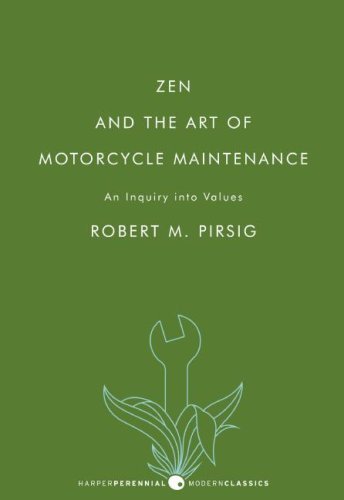
One of the strangest books I have ever read, in a positive way. Challenging and rewarding at the same time, like nothing else. More to the point, it is almost impossible to say what is this book about.
For some thoughts I could catalog the book into the PP section. One of the most prominent thoughts to me is on the importance of being stuck: “Stuckness shouldn’t be avoided. It’s the psychic predecessor of all real understanding”.
At some point in reading I have got a feeling that I could write my own book, not because it is easy, but because the book gave me a feeling that I can express my own thoughts artistically. Great, complex and rewarding reading.
Natasha’s Dance: A Cultural History of Russia
by Orlando Figes
read on 2014/07
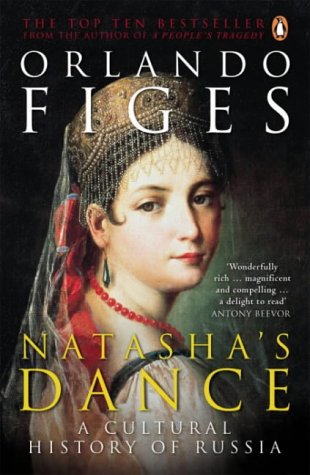
Figes attempts to seize the immense – to portray Russian culture and Russian identity in one book. The book is a gem for anyone interested in Russian history, culture and it’s people’s weirdness. As someone brought up in Russia, I greatly appreciate the point of view of a foreign observer, who attempted research of a great scale with a scary amount of facts and background data. The mass of details is wonderful and overwhelming at moments, almost encyclopedia-like with a personal voice, where common stories are told through individual lives. To my delight, this is done without overplaying on Russian stereotypes. Figes is trying to understand the roots of Russian culture that decorates Russian people with tormenting contradictions.
This reading must be interesting to my Russian friends as well. Post-soviet school system was not perfect, we haven’t heard a great deal of opinions on the culture and its roots, just a few selected ones. It is enriching to get an extended framework to see our culture in the context of other cultures, compare them, discover the causes and ideas that we share with others, piece together the pictures of the puzzle.
My thanks to А.О.
1984
by George Orwell

Who would only know, this is the book that started my serious reading. 1984 opened to me the power of books and what they can convey.
My thanks to А.Ж.
Let my people go surfing
by Yvon Chouinard
read on 2014/10
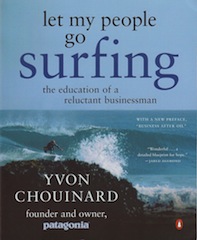
I care for the environment we live in. I believe that too many large and small businesses, good and evil governments are ruining our planet. But I could not see how to go about it. What can I do? It can be tempting to think that when (and if) I get into position of power, then I will apply all my knowledge about green living and working. Tempting and, probably, irresponsible. Yvon teaches us how to think about being responsible for the environment now, no matter what is our position in life. A great story about a company that actively responds to the environmental crisis we find ourselves in. Read it, please.
PP
PP stands for Productivity Porno. I enjoy reading PP, it is addictive. Nevertheless, I came to realize that it can only affect your life if you make PP ideas yours, as if they are your own personal thoughts. If you relate to them, if you internalize them and act on them every day.
If that is not the case, then reading PP books may even make you feel bad. This is because you will observe yourself not acting on goals the book helped you to identify. You will observe that you forgot where did the motivation come from. And later you will forget the feelings the book triggered in you.
Having said that, here’s my PP list – enjoyed them all, act on some.
Linchpin
by Seth Godin
read on 2012/10
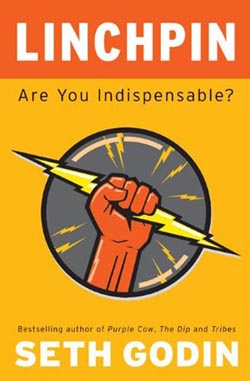
There is no benefit in doing less or cutting corners. Do more, do difficult work, do more art, do it your personal way, ship it. A great deal of fundamental ideas about doing and being are spelled out, as well as fears that surround them.
I love work by Seth. So much motivation and clear unobstructed thinking that makes you feel “Why didn’t I think of this?”.
With all my respect, I have a personal wish for Seth – to use the “humor weapon”. He talks about important things with the air that makes you realize they are important, but uses almost zero humor. I wish he could do it just like Zig Ziglar, whom he quotes so often. I wish for it, because his ultimate goal is positive – to give people freedom and power of making art – and so it should sound positive, and have smiles coming with it along with the hard work it requires. (I need to work on this as well – this paragraph is way too serious :).
Hackers and painters
by Paul Graham
read on 2009/02
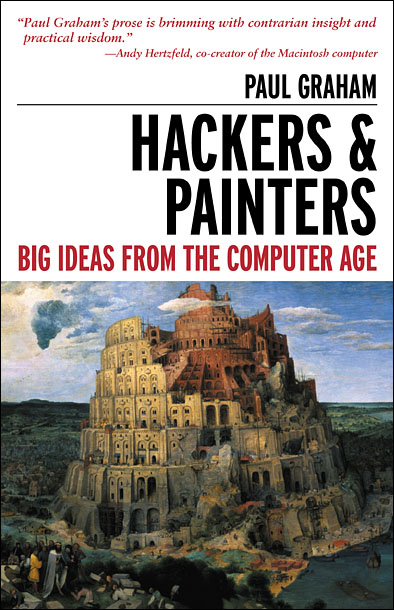
This book is a selection of Paul’s essays, which are numerous. To me, Paul is a sage, a visionary who questions the past, the present, and senses the trends. I wish to reread his essays over and over again.
4HWW
by Tim Ferriss
read on 2011/03
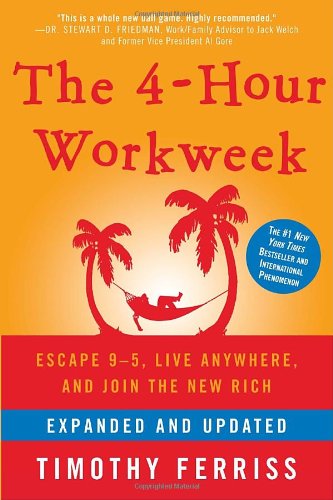
This books was an inspiration for me. It rendered complex questions about taking control of your life seem easy and feasible. It is both a study book, and an exercise book that helps you to challenge yourself on the spot inspiring for action. Starting from self-reflection, it gives you a framework for managing the fuzz in your life and to be productive.
The book does not help you to answer the question “Why?” – why should I be productive, why do X and start business Y. But it does help when you know why you want to do what you want to do. The book answers the “How?”.
The important and often underrated message in the book is that you do not just jump to the next adventure, but you thoroughly plan a smooth transition. The book by Cal Newport later in this list gives a great motivation for why planning the transition is so important.
By following Tim’s work after 4HWW for several years, I come to believe that he did not write the book, but engineered it with some talented people. The language he uses in interviews, talks and his other books is just too different from the language in the book. Incredibly, the book is great, but after this realization (which still is just my personal impression) it lacks for me a sincere writer and ideology behind it. However, knowing Tim’s work now, that is exactly what he should have done. You need to read the book as if it is sincere to you and written for you, but after you get the knowledge the book gives you, you should see it as a manifestation of what it preaches: to use your strongest personal sides and outsource the rest.
What is great about Tim is that he always leaves you with a multitude of references to explore and these references are of a great quality. Many books in this library are from these references. Thank you, Tim.
Why leaders eat last?
by Simon Sinek
read on 2014/05
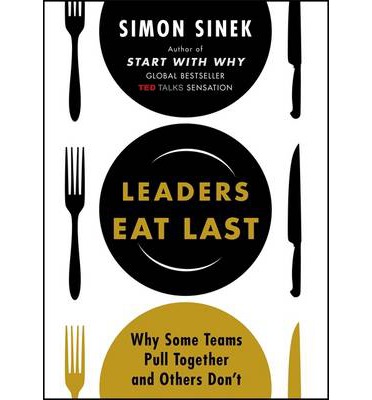
Why to be a leader? Simon gives you a case for why you have to choose to be a leader and what it entails. I love how he connects our evolutionary past (chemicals that flood our brain) and the way we feel about leadership. You need to understand humans to understand business and working life.
This is probably the only time I recommend a talk over a book. I think Simon is a great presenter and I highly recommend watching his talks from 99U: “Why leaders eat last” and “If You Don’t Understand People, You Don’t Understand Business”.
The art of learning
by Josh Waitzkin
read on 2014/06
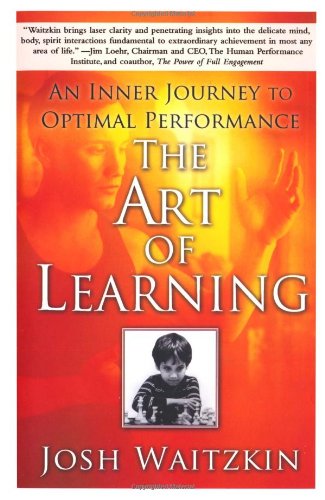
I discovered this book through Tim’s suggestions after listening to his podcast interview with Josh.
Just to give a little context, Josh Waitzkin is an 8-time National Chess Champion, a 13-Time National and 2-time World Champion of Tai Chi Chuan Push Hands, and a Brazilian Jiu Jitsu Black Belt. He is a president of an educational non-profit organization.
How a chess world champion player can win Tai Chi championship in Taiwan? You have to have a winning attitude to achieve that. Ziglar’s quote applies here very well: “In order to win, you must plan to win, prepare to win, and expect to win”. The book shows how winners think, their attitude and guiding principles.
Differently from most PP books, this one has a captivating story and narrative style. Do not misunderstand me, most of PP books have some personal story behind them, but they focus on lessons rather than on the story. For most of them the prose is just a mechanism to convey the message. In contrast, The art of learning has a deep personal story that is pleasant to read. And on top of it, the story teaches you masterly.
To me this book underlies the importance of how you convey your message. A message may be extremely important and timely, but, if you fail to present it in a compelling way, to a high degree you fail to present it at all. It is not a reader to make sense of the message, add value to it through thinking and building thoughts on it. Nope, it is an author’s responsibility, deal with it.
Verbal Judo
by George J. Thompson
read on 2013/02
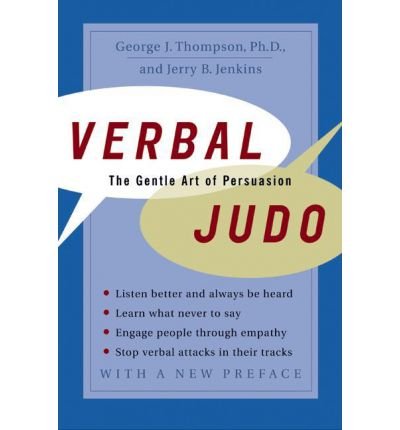
Ever felt condescendence from a stranger? Had quarrels with your mate? Had to deal with nasty students? Do you have any logical way to cope with difficult situations?
Cops deal with people under influence (of rage, alcohol, or fear) every day. And smart cops have great, powerful and gentle solutions to teach us. I believe that this knowledge has to be taught in schools. Nothing more to add, just use it.
The author of this book is George J. Thompson was a great personality. Watch his lecture to add his voice and charisma to the narrative and to learn better “Verbal Judo: Diffusing Conflict Through Conversation”.
So good they can’t ignore you
by Cal Newport
read on 2014/04
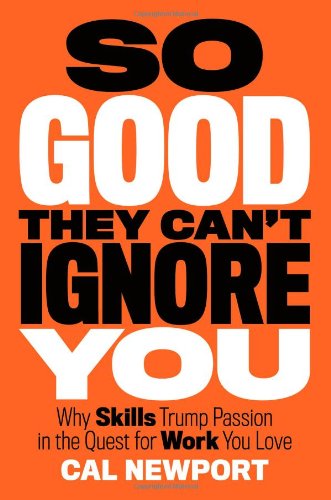
Computer scientists can write PP books. This one appeals to our logic and makes a point that mastery breeds passion and fulfilling work, and not necessarily the other way round.
In the search for fulfilling work Cal’s advices look sober and well supported. Creativity, Impact, Control, Career Capital, Mission and Adjacent Possible – the words that become meaningful and help thinking about work that defines oneself. Notably, his logic discourages people from “dropping everything and starting from scratch” as being unsustainable – he suggests to take little steps that allow one to move with support from one point in life to another.
Personally, in this book I met a few people that worked in the same institutions as I did. Because of this, the book resonated with me, not only through logic, but also as being near in time and space.
Seeking wisdom. From Darwin to Munger
by Peter Bevelin
read on 2012/12
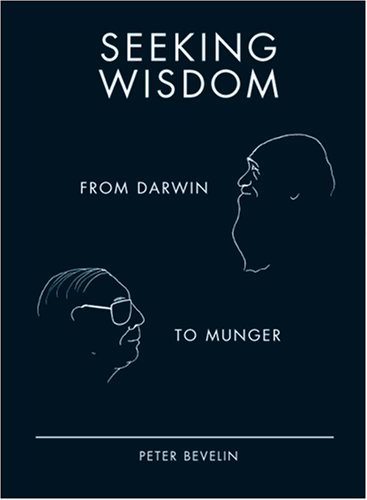
Want more logical unobstructed thinking to help you? Inhale the wisdom. Wisdom, probability and statistics, this is what this book is about. Do the math and take all the important decisions.
A guide to the good life
by William Braxton Irvine
read on 2013/06
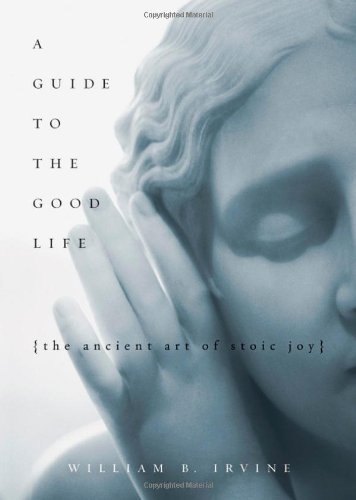
Digested lessons from the Stoics. Wise men from two millennia ago can teach us how to deal with social pressure, how to tackle difficulties, and how to live a good life.
William carefully translates the thoughts of sages from their times to our context in which it still makes a lot of sense. Wonderful, clear and rewarding reading.
